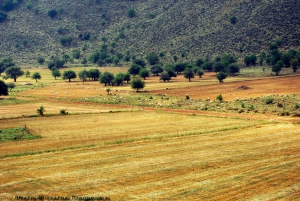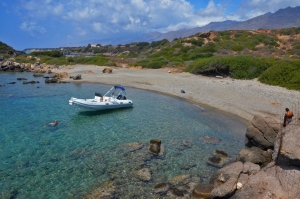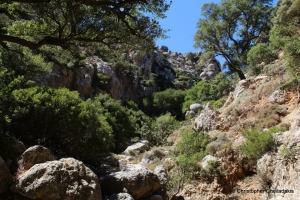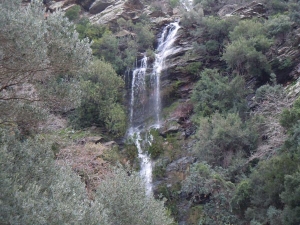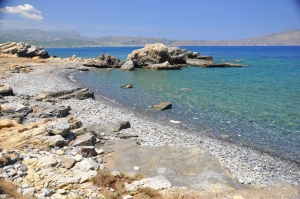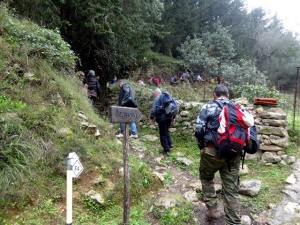Ο Βόθωνας ή Λακούδια είναι ένα πολύ μικρό οροπέδιο που βρίσκεται 40km νοτιοανατολικά των Χανίων, κοντά στο χωριό Βαφές. Η πρόσβαση γίνεται μέσω του χωριού Βαφές, μέσω βατού χωματόδρομου. Το τοπίο των γύρω βουνών είναι εκπληκτικό, με τα επιβλητικά Λευκά Όρη στο φόντο και τις ακτές της Γεωργιούπολης στα βόρεια.
The beach Keratidi, or to be more accurate the two beaches of Keratidi, are located at a secluded location east of Laki, province Sfakia, and are actually the easternmost beach of south Chania prefecture.
Μισή ώρα πάνω από τον αρχαιολογικό χώρο της Λισσού σε ένα εντελώς κρυφό σημείο στην περιοχή Λύχνου Λάκκοι βρίσκεται ένα μικρό και πολύ όμορφο φαράγγι. Το φαράγγι αυτό που βρίσκεται στην περιφέρεια του χωριού Προδρόμι Σελίνου στα νότια Χανιά και στην είσοδό του μας οδηγεί χωματόδρομος που φεύγει από το χωριό προς νότο.
Ο ψηλότερος από όλους τους καταρράκτες της περιοχής του Φόδελε είναι της Γριάς το Πήδημα στην περιοχή της Ρέχτρας που φέρνει τα νερά από την δυτική μεριά του όρους Βασιλικού. Ο καταρράκτης αποτελείται ουσιαστικά από τρία μικρότερα σκαλοπάτια και έχει συνολικά ύψος που ξεπερνάει τα 20 μέτρα. Έχει νερό μόνο μετά από κάποια περίοδο έντονων βροχοπτώσεων.
2km east of Nopigia we meet the rocky coast of Choni. In order to access it, you have to follow the seaside road from Nopigia to the East. After the little square theater of the Orthodox Academy, follow the dirt road leading to Choni and the church of Panagia (i.e. Santa Maria).
This part of the E4 trail starts from the historical monastery of Arkadi, heads to antiquities of the ancient town Eleftherna and then concludes at the village Margarites. The highlights of the route include the monastery of Arkadi, the ancient necropolis and the Roman cisterns in Eleftherna and the traditional houses of Margarites.
Στον Προπατούμενο σχηματίζονται σε μικρή απόσταση τρία διαδοχικά βοτσαλωτά κολπάκια με πεντακάθαρα νερά ιδανικά για μπάνιο το κάθε ένα διαφορετικό από το άλλο. Ενώ η περιοχή βρίσκεται μόλις λίγα μέτρα από την εθνική οδό παραμένει εντελώς άγνωστη και ποτέ δεν θα συναντήσετε άλλα άτομα.





